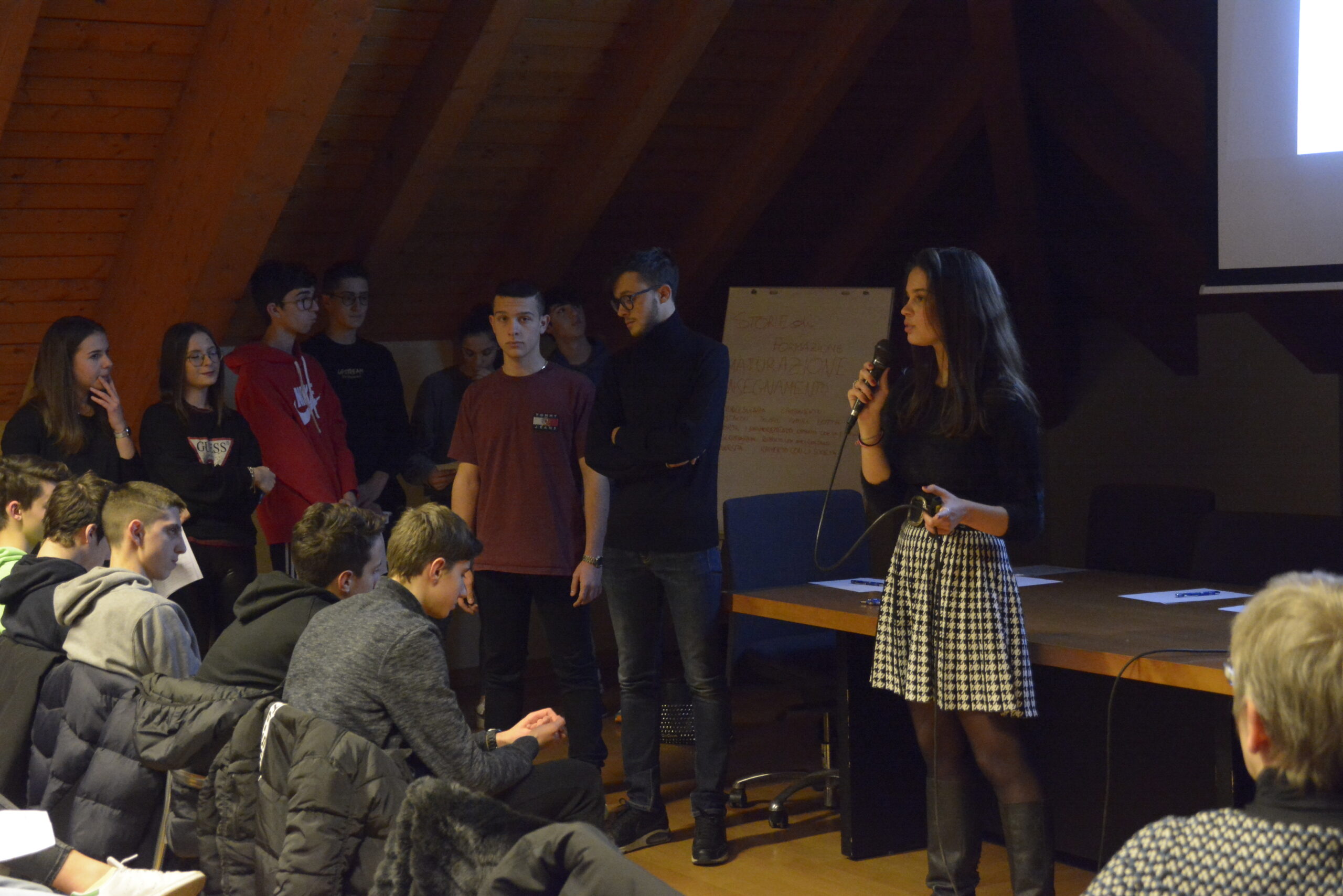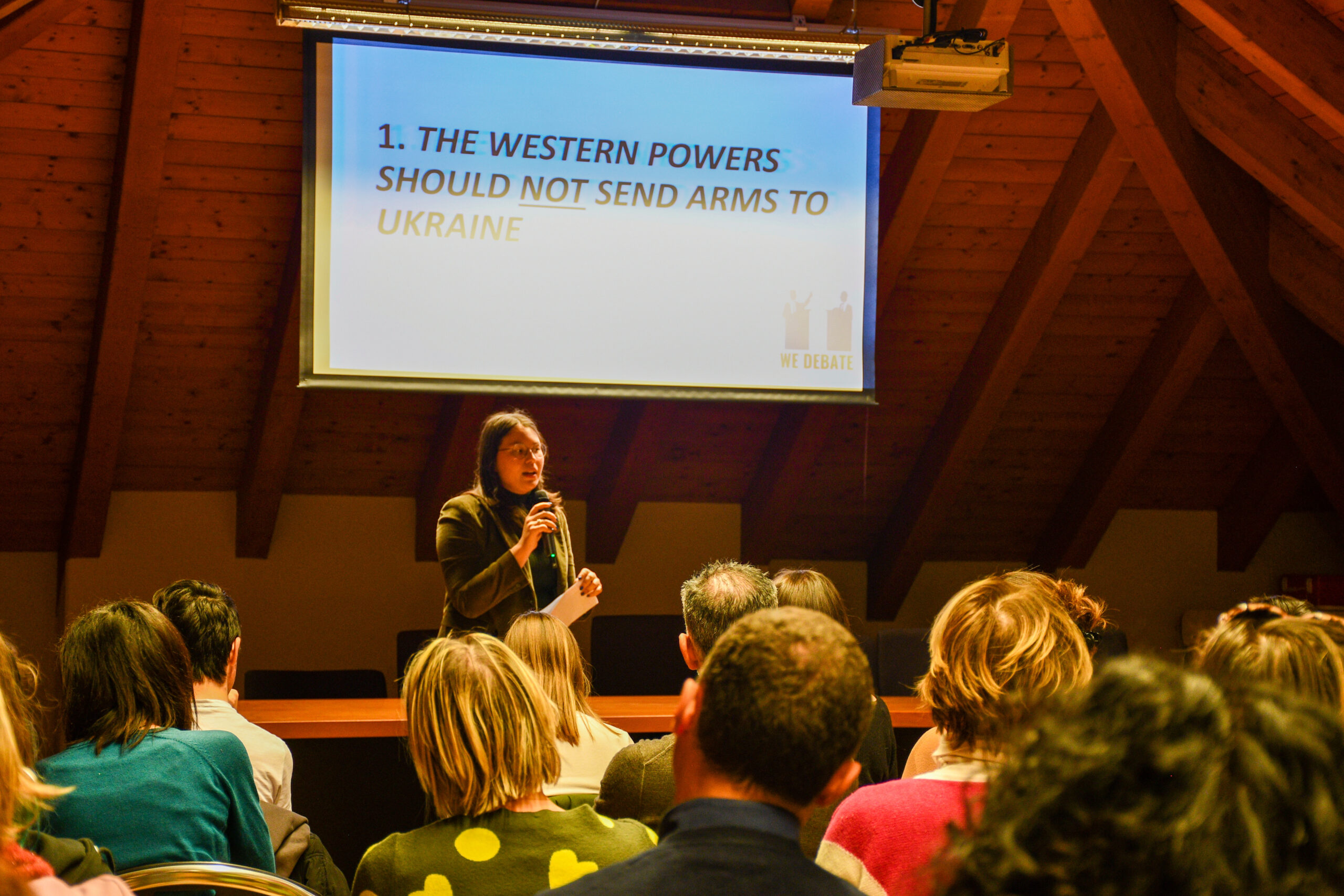Coinvolgimento dei ragazzi giovani che hanno fatto WeDebate a scuola a Monza e Lissone
“The old believe everything; the middle-aged suspect everything; the young know everything” Oscar Wilde
Young Coaching the Young
WHY?
Freshness and Empathy. Having coaches who are only a few years older than the students themselves allows the students to see it’s something possible and relevant, not something pushed by ‘old teachers.’ Discussions about anxiety and being nervous are easier when the age gap is only a few years. It also helps ‘older teachers’ stay up-to-date.
WHO?
For the first three editions of WeDebate In Lissone the students were prepared by Micol Fossati. It’s a nice story: Micol started studying in our after-school courses when she was in the second year of middle school. Now she helps coach our students.
We have prepared a guideline for our students explaining how WeDebate works
We have also prepared a KAHOOT to quickly remind everyone of the procedures
Dove siamo a
Telefono
Email Contact
Dove siamo a

MICOL FOSSATI: INTERVIEW
• When and where did you first get involved with WeDebate?
o I started this activity in the fourth grade at Mosé Bianchi. In my school, debate has always been highly promoted and the courses attended by many students.
• How many lessons did it take to prepare the students for the live event in February?
o 5/6 lessons per group.
• Did you find it difficult coaching students only a few years younger than you?
o In my opinion coaching students only a few years younger than me was on the one hand easier but also very challenging. By the way, it was easy putting myself in their shoes and understanding their needs.
• What was the most challenging part of the preparation for you (and for them)?
o I think for the students the most challenging part was testing themselves. It’s not easy to immerse yourself in this activity, especially in English. All the students worked well and managed to achieve excellent results that were definitely not easy. In schools, students prepare for several months before speaking in front of an audience, whereas we succeeded perfectly in a very short time. Being able to speak in public especially for the shyer ones was a huge challenge that everyone faced with maturity. For me, the most stimulating part was definitely dealing with people who had never had to deal with this discipline before, trying to increase the groups’ interest in debate more and more.
• What did you enjoy most about it?
o It is a huge pleasure and opportunity for me to be able to pass on to students younger than me the passion for debate and all the benefits associated with it. It is very rewarding to see how students develop a great interest, and in some cases continue this activity on their own.

JUDGE AND COACH: Sara Monguzzi
Sara Monguzzi judged the final editions of WeDebate in 2022 and 2023. She will also be helping coach our students.
Here is an interview with Sara.
• When and where did you first get involved with WeDebate?
o Sometime the points I give each speaker ,which at the end result in the overall score of the team , can end up being the same. However, I tend to always decide a winner by checking the overall fluidity and the coordination between the members that make up the teams.
• Do you find it more difficult to judge or to speak in a debate?
o Definitely being a judge! While debating mainly needs courage and a good preparation, judging needs experience and extreme attention all throughout. And not only that, you also need to be extremely critical of the debaters and deliver the necessary feedback.
• Normally, how many judges are there?
o Normally there are 3 judges present in a debate ( since there needs to be a majority vote) . But in smaller scale debates there usually is only one.
• What are the 3 most important factors in deciding which team wins?
o 1. The personal score of each speaker ( which are points rewarded for : form, style, time and content)
o 2. The coordination in the arguments presented by the team ( the strongest argument usually comes first, then come the other two which need to follow-up the team line that was presented)
o 3. The confidence and participation that characterizes each team ( the members need to be sure of what they are doing as well as actively involved in the debate , engaging with elements such as POIs)
• What is the most challenging aspect of being a judge?
o It has to be delivering the feedback as constructively and as nicely as possible. Every judge is aware that a speaker cannot be perfect. When we point out mistakes made by the speakers we are hyper aware of how the student is going to perceive it. Overall the hardest part consists in indicating flaws found in each speech , without excessively sugar-coating it or being too harsh.
• What happens if the losing team completely disagrees with the judges decision? Can they appeal?
o It is very rare to see a team that outright disagrees with the judge’s decision ( the judge always provides clear commentary which explains their decision) . But it’s not impossible to encounter teams that don’t agree with the decision ruled by the judge. Unfortunately however , it is impossible to appeal a decision once it’s made ( unless it is due to the incompetence or bias of the judge) . Not to worry though, debaters can ask for personal feedback or further clarification at any time during the final ruling.
